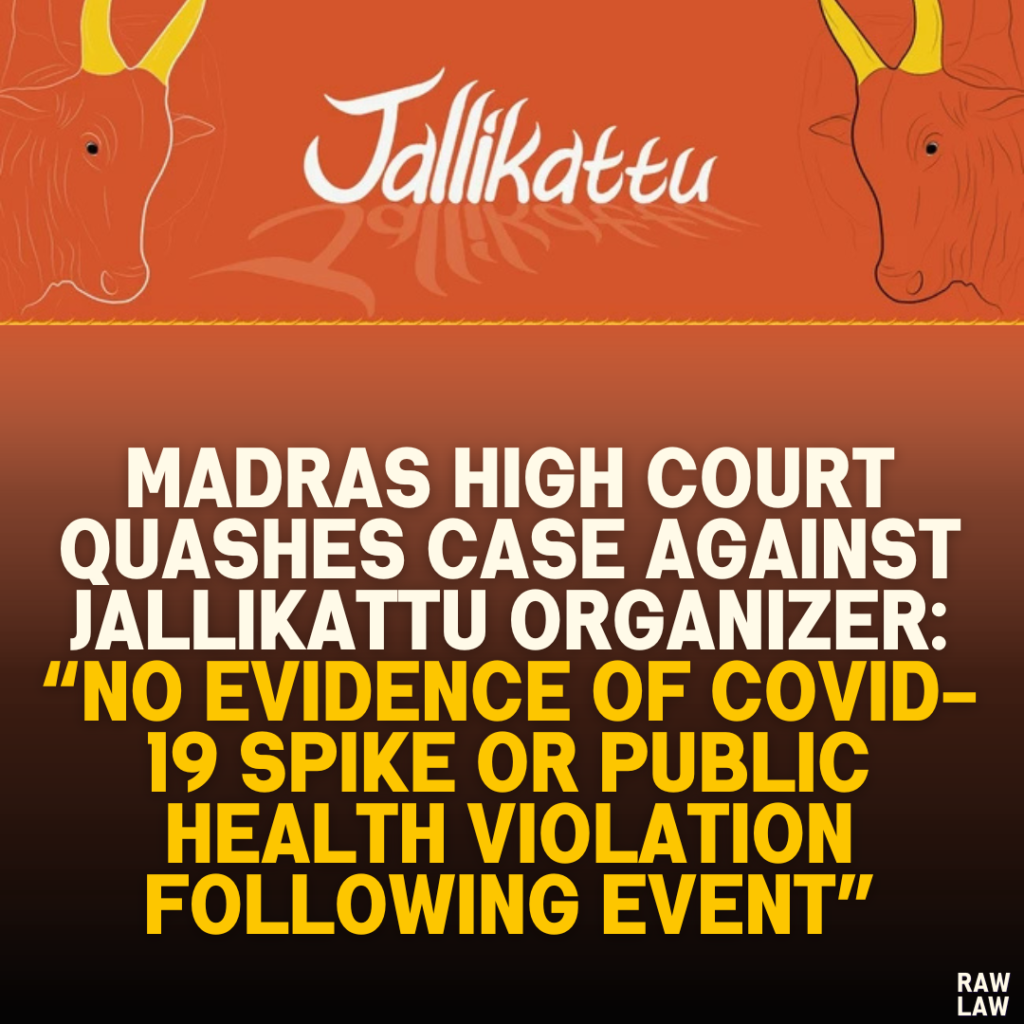Court’s Decision
The Madras High Court quashed the FIR against the petitioner, who was accused of violating COVID-19 restrictions during the Jallikattu festival. The Court observed that there was no evidence showing a surge in COVID-19 cases following the event and found the accusations unfounded.
Facts
The petitioner, the organizer of a Jallikattu festival in January 2022 at Vannianviduthy Village, conducted the event after securing official permission with specific restrictions due to the COVID-19 pandemic. However, the Village Administrative Officer reported a violation, claiming that attendees from nearby villages participated, allegedly breaching lockdown limitations. The FIR was subsequently filed under various sections, including the Disaster Management Act, 2005.
Issues
- Whether the petitioner violated the government-imposed COVID-19 restrictions during the Jallikattu festival.
- Whether sufficient evidence exists to establish a public health risk or breach of mandated participant limits.
Petitioner’s Arguments
The petitioner argued that all permissions were duly obtained, and the event was conducted under the supervision of local authorities. They contended there was no evidence indicating an increase in COVID-19 cases due to the event. Furthermore, they claimed the Village Administrative Officer, an outsider to the village, had an unsubstantiated view of the event’s management.
Respondent’s Arguments
The prosecution asserted that despite official oversight, the petitioner allowed villagers from outside the designated area, thereby disregarding COVID-19 protocols. They highlighted the broader risk posed by such public gatherings during the pandemic.
Analysis of the Law
The Court examined the provisions under the Disaster Management Act, particularly Section 51(b), which penalizes non-compliance with government directives. The Court evaluated whether the petitioner’s actions amounted to a violation severe enough to invoke this section.
Precedent Analysis
The Court referenced prior cases where non-compliance with health directives was examined, establishing that a tangible threat to public health is necessary to substantiate such charges.
Court’s Reasoning
The Court observed that no public complaint or evidence showed that the event caused a spike in COVID-19 cases. The authorities present during the event, including police and medical personnel, did not file any complaints, suggesting compliance with safety protocols. The Court emphasized that without a direct link to increased COVID-19 transmission, holding the petitioner accountable was unjustifiable.
Conclusion
The Court concluded that the accusations were baseless, noting that the petitioner followed due procedure and conducted the event under official supervision. It quashed the FIR, affirming that no credible evidence linked the petitioner to any public health violation.
Implications
This judgment underscores the need for concrete evidence when enforcing pandemic-related restrictions. It establishes a precedent that accusations must be backed by demonstrable impact on public health, particularly in cases involving traditional events like Jallikattu, where cultural significance is intertwined with public policy.



